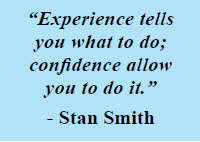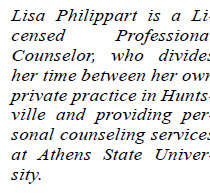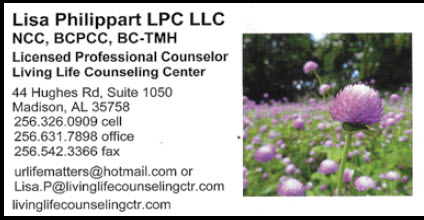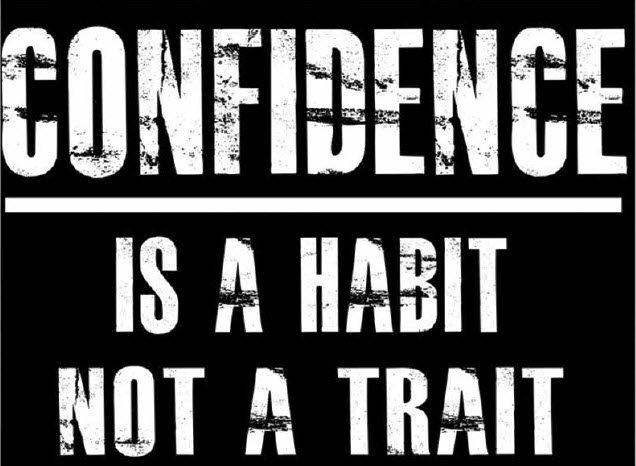 By: Lisa Philippart
By: Lisa Philippart
Confidence is about what you remove from your life, not what you add. Most of the time people don’t lack confidence in the fundamental sense. Instead, their natural, good-enough level of confidence is being blocked or interfered with by inner obstacles, like chronic worry and anxiety, negative self-talk, or compulsive avoidance. For example, do you start worrying like crazy before speaking in public, which then makes you feel like you lack self-confidence? Or do you just lack self-confidence? Worry is a habit you can do something about, and increased confidence will be a side effect of managing your worry better. This month, I’ll walk you through some of the most common habits that interfere with your self-confidence. If you can learn to identify and eliminate these habits, you will start to feel more confident.
Let’s begin with anxiety. Most people who struggle with confidence also experience a lot of anxiety…concern about what others think of them, not performing well, etc. The natural response most people have to anxiety is to try and cope with it. We are instructed to reach into our toolboxes of coping skills and quickly do something to try and “deal” with the anxiety, such as deep breathing, distraction techniques, or mindfulness meditation. But here’s the problem: When you immediately try to get rid of your anxiety by applying coping techniques, you teach your brain to view anxiety as “dangerous.” This means when you start to feel anxious or inadequate, you’re going to feel ashamed or anxious about feeling anxious! Stop just coping with your anxiety and learn to accept it. Anxiety may feel bad, but it’s not dangerous. Start validating difficult emotions instead of avoiding them and see if your emotional esteem/confidence will rise.
 Nobody likes feeling inadequate or incompetent. These feelings lead to an understandable mixture of anxiety, shame, disappointment, and even hopelessness. When you feel bad, it’s natural to look to something, or someone, to help you feel better. And when you turn to others, most people in your life want to be nice, telling you things that make you feel better. Of course, in that moment it’s reassuring and relieving to hear these things and be comforted by other people. But, if you always outsource your emotional struggles to others, you deprive yourself of the opportunity to gain confidence. A big part of emotional maturity (and the confidence that results from it) comes from taking responsibility for your own feelings. I agree that your feelings of insecurity or inadequacy are difficult. But they are your feelings. And managing them is your responsibility. When you accept this responsibility, confidence will emerge.
Nobody likes feeling inadequate or incompetent. These feelings lead to an understandable mixture of anxiety, shame, disappointment, and even hopelessness. When you feel bad, it’s natural to look to something, or someone, to help you feel better. And when you turn to others, most people in your life want to be nice, telling you things that make you feel better. Of course, in that moment it’s reassuring and relieving to hear these things and be comforted by other people. But, if you always outsource your emotional struggles to others, you deprive yourself of the opportunity to gain confidence. A big part of emotional maturity (and the confidence that results from it) comes from taking responsibility for your own feelings. I agree that your feelings of insecurity or inadequacy are difficult. But they are your feelings. And managing them is your responsibility. When you accept this responsibility, confidence will emerge.
 It’s hard to feel confident when you are constantly telling yourself that the world is about to end. Now that may sound dramatic, but many of us have gotten into the habit of catastrophizing. Catastrophizing is the immediate obsessing over the worst-case scenarios every time something negative happens. This is the inner world that you’ve created for yourself. Even if you know intellectually that the worst case isn’t likely to happen, if you constantly tell yourself it is, then that’s how you feel. After a few short minutes of “what-iffing,” you find yourself feeling incredibly anxious, insecure, hopeless, and not very confident! Catastrophizing is like turbo-charged worry. If you struggle to feel confident and have this catastrophizing habit, it’s critical that you learn to identify what you are doing and start to break it. As difficult as it may seem in the moment, it is possible to control your attention and not let your mind spiral. Learning to replace mental distortions with cognitive clarities is the place to start.
It’s hard to feel confident when you are constantly telling yourself that the world is about to end. Now that may sound dramatic, but many of us have gotten into the habit of catastrophizing. Catastrophizing is the immediate obsessing over the worst-case scenarios every time something negative happens. This is the inner world that you’ve created for yourself. Even if you know intellectually that the worst case isn’t likely to happen, if you constantly tell yourself it is, then that’s how you feel. After a few short minutes of “what-iffing,” you find yourself feeling incredibly anxious, insecure, hopeless, and not very confident! Catastrophizing is like turbo-charged worry. If you struggle to feel confident and have this catastrophizing habit, it’s critical that you learn to identify what you are doing and start to break it. As difficult as it may seem in the moment, it is possible to control your attention and not let your mind spiral. Learning to replace mental distortions with cognitive clarities is the place to start.
By: Lisa Philippart
Licensed Professional Counselor










 June 20, 2025
June 20, 2025



